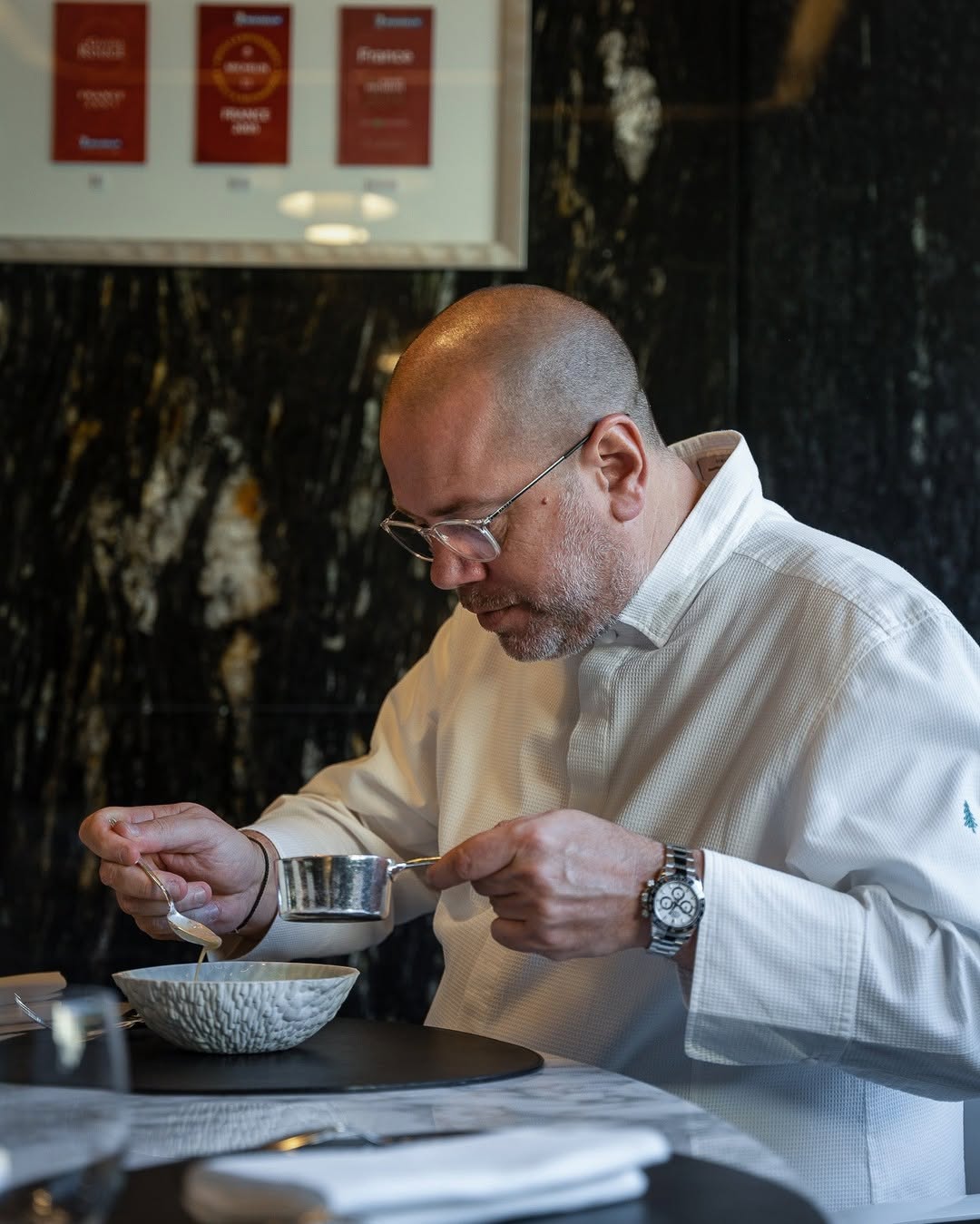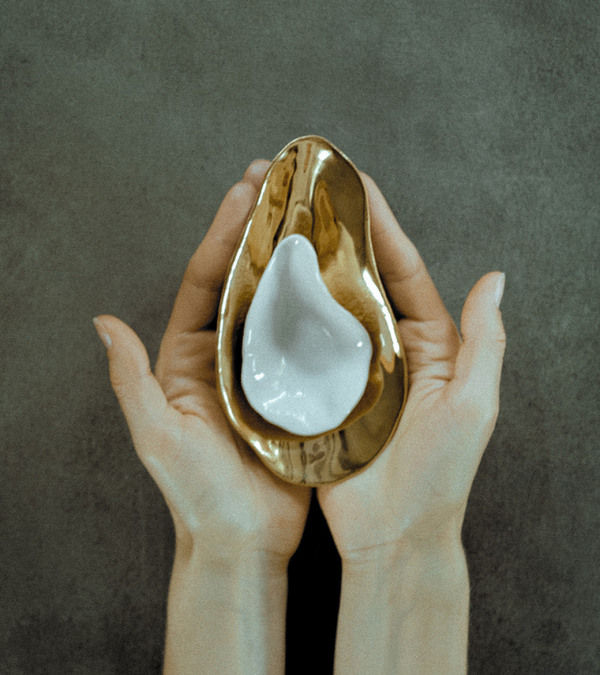
Redefining Luxury
By Sarah-Linda Forrer
In our 9 Questions Interview Series, I sit down with chefs, food lovers, and hospitality professionals I admire to talk about food and the culinary world.
I try to get a glimpse into the minds of those shaping the way we eat, through their memories, opinions and lessons around food. What has shaped their approach to gastronomy, and where do they think the future of food is going?
Arnaud Lallement is a renowned French chef, born in the heart of the Champagne region, and I’m proud to count him among my Michelin-starred clients. Son of restaurateurs, he developed a passion for cooking at an early age by watching his father, Jean-Pierre, at work in the family restaurant’s kitchen. After graduating from the Strasbourg Hotel School, he honed his craft alongside great names in French gastronomy such as Roger Vergé, Michel Guérard, and Alain Chapel.
In 1997, Arnaud joined his father at L'Assiette Champenoise, the family establishment located in Tinqueux, near Reims. In 2000, he took over the reins of the restaurant and set out to carry on the family legacy. Under his leadership, L'Assiette Champenoise regained its first Michelin star in 2001, earned a second in 2005, and achieved the ultimate recognition with a third star in 2014.
Arnaud Lallement’s cuisine is distinguished by a perfect mastery of acidity, balanced by the natural sweetness of the ingredients, offering an authentic and emotional tasting experience. He places great importance on showcasing seasonal produce and working closely with local producers, reflecting his deep connection to his native region. His motto, “Mangez vrai!” (“Eat true!”), illustrates his commitment to sincere cooking that respects the original flavors of each ingredient.
Today, L'Assiette Champenoise is not only a three-Michelin-starred restaurant, but also a five-star hotel, a true embodiment of excellence and hospitality in the Champagne region.










